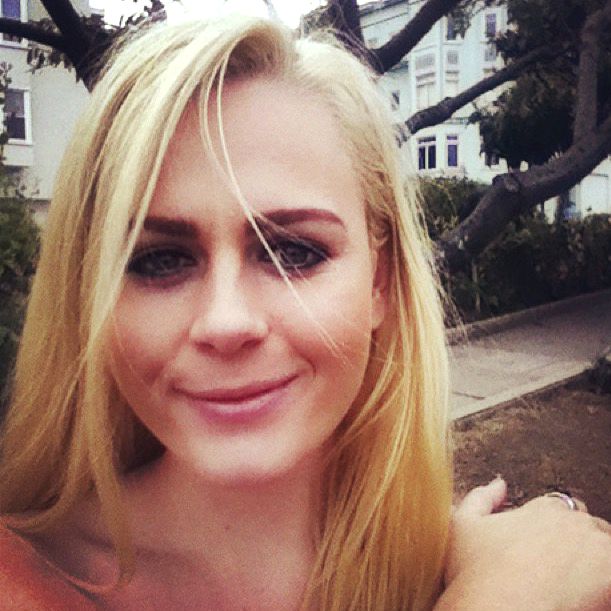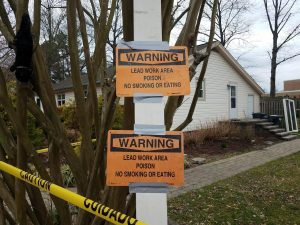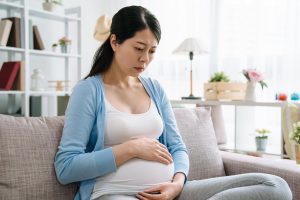ONE IN FOUR WOMEN will have a miscarriage during her lifetime.
I knew the numbers were high, but twenty-five freaking percent, that’s huge. What’s more baffling, though, is the utter lack of discussion about miscarriage when there are so many people who go through it. Miscarriage is a taboo topic in our society, which I can attest to, since I’ve experienced it myself.
My experience was a little different than most. It happened a couple of months ago. I did not want a baby. I was not trying to get pregnant. In fact, I was actively trying not to get pregnant; I was on birth control. I might as well have not been, for all the good it did. I still got pregnant on birth control and it caused me to miscarry; this happens to less than 1% of cases. When I was initially diagnosed, the health professionals said the miscarriage was incomplete, which means that there is bleeding and the cervix is dilated, but there is still some pregnancy tissue in the uterus. The doctors said the miscarriage would most likely complete naturally on its own. That didn’t happen. I kept bleeding for another two-and-a-half weeks and I had the most painful cramps I’ve ever experienced. I had to have a D&C, or a dilation and curettage, which entailed my doctor dilating my cervix and scraping the uterine lining to get the rest of the tissue out.
I told my close family and friends about some things, but not about how far along I was or about the D&C. I knew they would support me no matter what, but I still felt ashamed and isolated, for reasons I couldn’t articulate. My doctors barely spoke with me about my miscarriage throughout the entire process. I got the distinct feeling it was because I’m so young and the would-be father was not there present with me. They were sympathetic, sure, but they never gave me much support, or information on how to deal with the aftermath. Perhaps if I hadn’t felt so ashamed, like it was my fault for the miscarriage, then perhaps I would have told my parents. I might have been able to see a better doctor through their insurance for my D&C, rather than paying out-of-pocket. I might have not ended up with Asherman’s Syndrome as a result.
Asherman’s Syndrome is when adhesions and scarring are left on your uterus by a D&C. I found this out just recently, when I was having painful periods again and went to a doctor to find out why. Once you have Asherman’s Syndrome, it becomes very likely that you will miscarry again or that you will be unable to carry to term; it is directly linked to infertility. Now, I’m not saying this for sure wouldn’t have happened if I had told my parents and gone to a different doctor, but now that it has, I can’t help but wonder. I can’t help but feel angry.
Why didn’t my doctors talk with me more about my miscarriage? Why didn’t they tell me what could happen after the D&C? Why are there so few support groups for women who have miscarriages? I don’t want kids, and I never really have. When there’s a baby in the room and it starts crying, most people search for a way to comfort it while I search for the nearest exit. The plan that I have for my life doesn’t involve kids; yet, when I miscarried and then found out it would be unlikely that I could have kids if I ever did want to try, I felt extremely depressed. My choice is gone now, and that’s what eats away at me. If I am so hurt and angry and depressed and I wasn’t even trying to get pregnant and don’t even want kids, I can only imagine what other women must go through who were trying to have a baby or who do want kids.
A miscarriage can be a traumatic and horrible experience, yet the support for women who experience it is non-existent. There is no discussion, no script to follow for friends and loved ones after the fact. There is little media presence or representation; if there is, it’s usually presented in the cloak of drama, like a woman falling down a flight of stairs. I think this problem is deeply rooted in the gender roles that are present in our society. The belief that women are supposed to be caretakers is still embedded in our cultural psyche, feminist advancements over the past century or no. When a woman is unable to have babies — or fails to want them in the first place — she fails in her gender role. An inability to fulfill one’s gender role typically leads to being ostracized and outcast; that’s why women who have abortions often experience hell from society. They’re “rejecting” motherhood, and therefore rejecting what society conceives being a woman means. However, because a miscarriage is usually through no conscious decision on the part of the mother — there’s an implicit assumption that she would have kept the baby if only fate hadn’t meddled — she doesn’t get ostracized. Her trauma just gets swept under the rug. But that’s how we’ve always chosen to deal with thing that are unpleasant, don’t we? We just simply don’t talk about them, until we have to.
Well, it’s time to start talking about miscarriages. We have to. We need to start discussions, and we need to form more support groups. We need to show that they are not alone when going through a miscarriage. Twenty-five percent of women shouldn’t have to be silent any longer.












-300x169.jpg)




